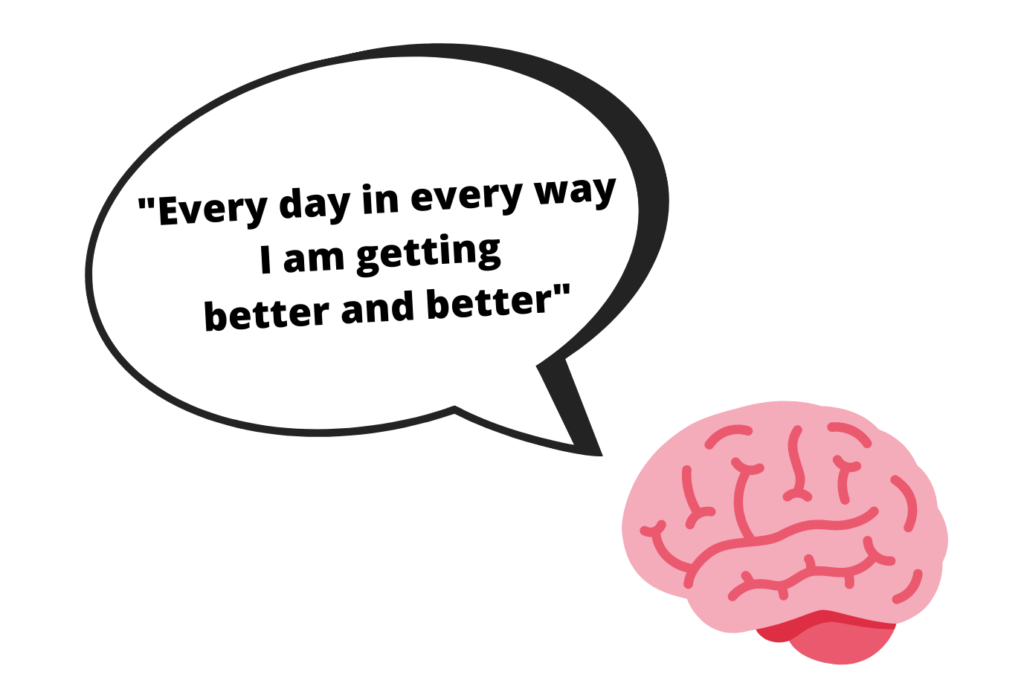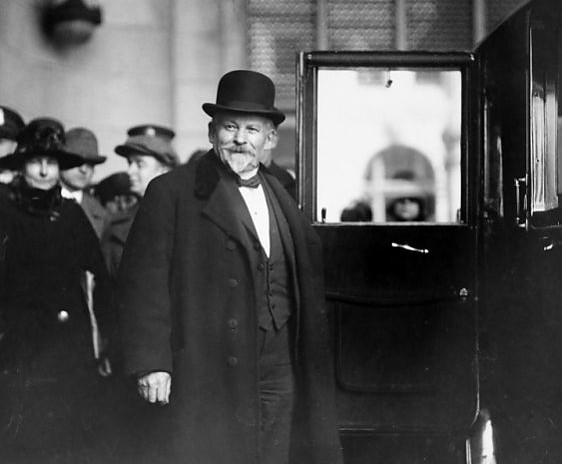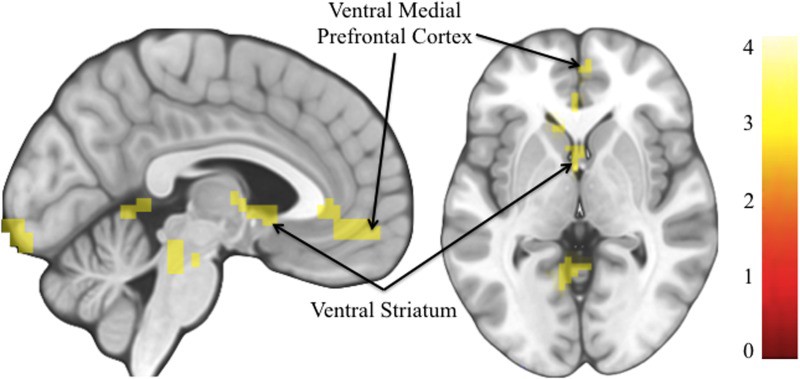
“The greatest discovery of my generation is that human beings can alter their lives by altering their attitudes of mind” – William James
The Power of The Human Mind
Scientists have discovered that the human mind is so powerful that it can convince the body of physical and or psychological illness. Neurasthenia, Hypochondriasis, and Somatization are all disorders that are categorized by a psychological interpretation that leads to a perceived physical symptom. This means that constantly worrying about getting sick can be the impetus for the body to begin feeling sick. Caroline Goldmacher-Kern, a New York-based psychotherapist said “The brain is so powerful that it really can convince itself of illness” [1].
If the human brain can convince the body that it is sick… can it also convince the body that it is well and thriving?
This article will seek to explore the impact of the mind over the body and explain how Emile Coué’s principle autosuggestion can be used to improve the quality of one’s life by rewiring subconscious thought patterns.
What is Autosuggestion?
Autosuggestion (sometimes called affirmation) is a method of self-administered suggestion that has the ability to influence the dominant thoughts permeating throughout the subconscious mind. Autosuggestion was introduced in 1920 by the French psychologist and pharmacist Émile Coué in his book Self-Mastery Through Conscious Autosuggestion [2]. In the book, Coué discusses the conscious mind’s ability to influence the subconscious mind. Coué explains that the subconscious mind
“may be compared to a horse, improperly harnessed to your carriage, and without bridle or reins; that horse may perform all sorts of foolish tricks and cause your death. But, harness him properly, drive him with a firm hand, and he will go where you want him to. It is the same with your [subconscious mind]. You must direct it for your own good” [2].

During his time as a pharmacist, Coué noticed that his patient’s beliefs and expectations related to the effectiveness of a medicine were as important as the medicine itself. This prompted Coué to discover the power of psychosomatic medicine also known as the placebo effect. The placebo effect in medicine is when the mind convinces the body that a treatment is real when in fact it is not. According to a 2019 Harvard Health article, “science has found that under the right circumstances, a placebo can be just as effective as traditional treatments” [3]. Coué was interested in the power the human mind has to influence the success of a given treatment. With his discovery of psychosomatic medicine in mind, Coué became motivated to learn other ways that the power of the placebo effect could be utilized.
Coué discovered that by repeating a positive and self-affirming message (with confidence and belief), a person could tap into the power of the placebo effect and convince the subconscious mind that the message being repeated is true. In this way, the conscious mind could begin influencing the subconscious mind to work towards achieving the repeated message. Coué became famous for his saying “Every day, in every way, I’m getting better and better”. Coué told his patients, “Learn to cure yourselves; you can. I have never cured anybody; the remedy is within yourselves” [2]. Coué set the stage for later scientific discoveries to be made about the neuroscientific and psychological implications of autosuggestion. As we will see, Coué wasn’t the only brilliant mind utilizing the power of autosuggestion.
“The world as we have created it is a process of our thinking. It cannot be changed without changing our thinking.” — Albert Einstein
The History & Science of Autosuggestion
There have been many people throughout history who knew of the power of autosuggestion. Although Emile Coué brought this to the mainstream in the Western world, the principles behind autosuggestion have been known for thousands of years. In the book, Rituals and Mantras: Rules Without Meaning, former UC Berkeley professor Johan Frederik Staal, wrote, “during the middle Vedic period — approximately, from 1,000 B.c.E. to 500 B.c.E. — ritual [mantra] became the most prominent expression of Vedic culture and civilization” [4]. Mantric expression has been a central practice in other Eastern religions as well such as Buddhism, Jainism, and Sikhism. Mantras, affirmations, and autosuggestions all tap into the same foundation idea: thoughts are important and we can direct them through repetition.
In more recent times, scientific investigations into the applications and overall effectiveness of autosuggestion have been advancing. In a 2014 article, Geoffrey Cohen from Stanford University and David Sherman from The University of California, Santa Barbara presented scientifically-backed applications of autosuggestion. According to the article, autosuggestions can help individuals in a variety of circumstances including, buffering against threats and stress, reducing defensive responses, assisting with intergroup conflict and interpersonal relationships, and overcoming barriers to long-term behavioral changes [5]. The main takeaway from this article is that there is a wide range of applications for autosuggestion which have the potential to positively impact a person’s life.
In a 2020 article looking at the applications of autosuggestion on individuals suffering from symptoms of social anxiety, the principal investigator, Dr. Łakuta wrote “research on self-affirmation [autosuggestion] has flourished in the past decade, with numerous studies demonstrating its capacity to improve emotion regulation processes and promote adaptive processes that resemble strategies of the resilient” [6]. The findings of this study confirmed that autosuggestion has significant positive long term effects that helped buffer against symptoms of social anxiety. Furthermore, this study supports the notion that autosuggestion has the potential to positively alter thought patterns leading to psychological improvements.
Interestingly, in another study, researchers discovered the neural correlates that are associated with autosuggestion: the Ventral Striatum (VS) and the Ventromedial Prefrontal Cortex (vmPFC) [7]. The VS is associated with the reward system, behavioral reinforcement, and learning. The vmPFC on the other hand is thought to be involved in emotion regulation, decision-making, and social cognition [8]. Collectively, these parts of the brain are associated with the reward system and self-related information processing. This discovery is important because continuous activation of these brain regions (through autosuggestion) will inevitably lead to stronger synaptic connections within the local neural circuitry. The strengthening of these connections has the potential to influence dominant conscious and subconscious thought patterns within the brain.

These scientific studies among many others continue to validate the effectiveness of autosuggestion as a means for altering subconscious thought patterns leading to positive behavioral changes.
Conclusion
The subconscious mind is one of the most dominant parts of the human psyche. It is particularly powerful because it does not occupy a person’s attention, rather it operates behind the scenes when a person is not thinking consciously. The subconscious mind gives rise to a feeling of identity by storing and reminding the conscious mind of beliefs about oneself. The subconscious mind is malleable and can be influenced by the conscious mind to adopt positive thought patterns and self-affirming beliefs.
Autosuggestion is a scientifically proven method of planting beliefs into the subconscious mind which has the potential to aid in the realization of a goal or desire. The principles of autosuggestion can be further studied through authors like Emile Coué, Napoleon Hill, Earl Nightingale, and Dr. Joe Dispenza among many others.
Although we may not have the ability to fully control our subconscious minds, we have the ability to utilize the principles of autosuggestion to begin influencing the subconscious mind. Furthermore, we have the ability to tap into the power of the human brain to cognitively appraise situations and consciously direct the metaphorical ship that is our mind. If used properly, autosuggestion has the potential to significantly improve the quality of one’s thoughts, behaviors, habits, values, and destiny.
“A mans mind may be liken likened to a garden, which may be intelligently cultivated or allowed to run wild; but whether cultivated or neglected, it must, and will, bring forth. ” — James Allen, As a Man Thinketh [9].

References
- https://www.psychologytoday.com/us/articles/201001/hypochondria-the-impossible-illness
- https://www.amazon.com/Self-Mastery-Through-Conscious-Autosuggestion/dp/1420928163
- https://www.health.harvard.edu/mental-health/the-power-of-the-placebo-effect
- https://www.amazon.com/Ritual-Mantras-Rules-without-Meaning/dp/8120814126#:~:text=Rituals%20and%20Mantras%3A%20Rules%20without,linguistics%2C%20anthropology%20and%20Asian%20studies.
- https://www.annualreviews.org/doi/10.1146/annurev-psych-010213-115137#_i46
- https://www-tandfonline-com.libproxy.berkeley.edu/doi/full/10.1080/10615806.2020.1746283
- https://www.ncbi.nlm.nih.gov/pmc/articles/PMC4814782/
- https://www.ncbi.nlm.nih.gov/pmc/articles/PMC5862740/
- https://www.amazon.com/As-Man-Thinketh-Complete-Original/dp/1523643536
~ This article was originally published in Mind Magazine Issue 4~
